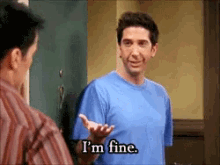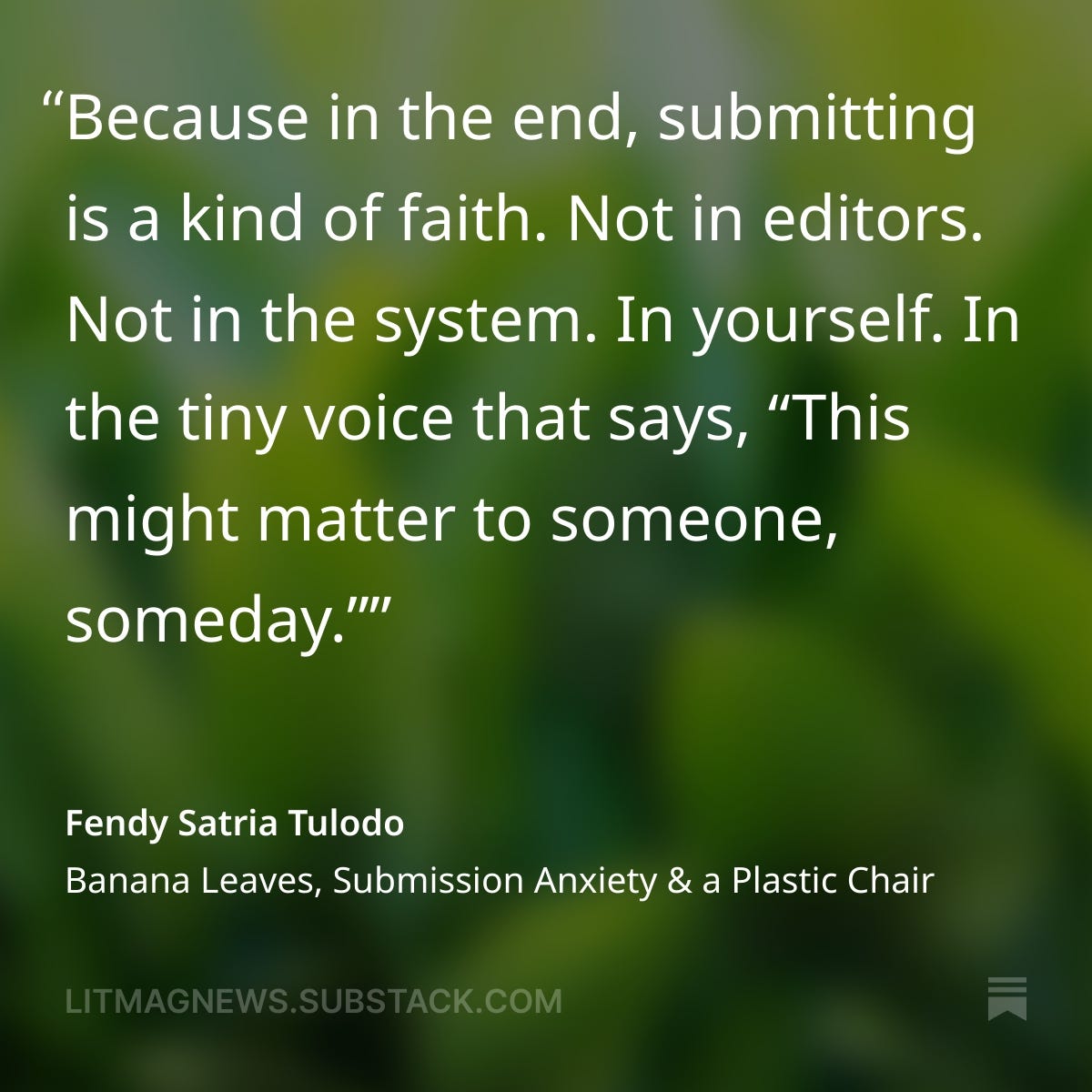The Shame of Wanting
Some thoughts on publishing and dreams not coming true

I have an addiction.
It’s a rather boring one, one I’m sure many other aspiring writers with a slight anxiety disorder share.
I check my email far too often.
I check it in the morning and after breakfast and while my children are ignoring me and at long red lights and five minutes after I just checked it and while I’m using the restroom and when there is a lull in the conversation at a party and instead of writing and as a reward for writing and an hour before bed because I’ve at least learned to put my phone away at night to help my circadian rhythm.
I’m checking for dopamine hits and crashes, and while my inbox is always tidied up, I’m well aware it’s a toxic relationship.
Mostly, I’m checking to see if an agent or an editor has decided my stories/novels/desperate musings are a “good fit” for his or her list, thereby validating the 1000+ hours I’ve spent turning my hallucinations into semi-lucid strings of words.
Yes, I’m checking to see if those hours will have some monetary compensation, but I can’t admit that, because what really matters is that each piece of writing contains my entire heart and soul and I would never sell those things but it would be nice if Capitalism recognized my value in the only way it knows how.
I’m just checking to see if my dreams have come true. It’s really totally fine that most of the time I’m just deleting spam mail. Of course I’m not bothered when that dream agent says “this is a subjective business, but objectively this sucks” (my words, not hers). Of course it doesn’t matter that I waited seven months to hear that my short story was so good it merited a form rejection.
The addiction has surged and abated over the years. When I finally signed an agent (the first time), I went quite a few months with a pretty healthy relationship with my inbox. Even when we went on submission, I probably only checked it ten times a day. As the rejections rolled in, I became a bit more obsessive. And when that agent began to ghost me, I had sort of a self-destructive affair with the refresh button.
The Distracted Writer is a newsletter founded on the belief that the best distractions are where stories take root. Subscribe for newsletters about storytelling, publishing, parenting, and more.
When I signed with an agent the second time (after a year and half of querying that forced me to delete the email app from my phone), I made rules for myself: I could only check to see if dream editors were sending offers three times a day. I did pretty well for nearly a year, at which point it became more and more clear that my healthy habits did not earn me the book deal they (I) had promised.
I’ve expanded my horizons now—I write this Substack and I’m submitting more short stories as I query a new novel. I’ve spread the points of validation around in the hopes that a single email won’t send me spiraling.
I see the paradox as clearly as you do: I’m trying to want less by wanting more. And the shame of all this is not really in my attachment to my email inbox.
The shame is in the wanting.
I want to be read. I want people to like what they read and tell me so. I want important people to like what they read so much that they spend money and hours sharing it with the world. I want a physical copy of my book with fancy binding and a pretty cover, endorsed with blurbs like “Brilliant” by authors who are actually brilliant (I’ll know because other authors have written “Brilliant” on their book covers). I want an advance that will finally reassure my parents that my English degree wasn’t a financial throw away.1
(I won’t say that I want Prestigious Awards and Celebrity Bookclub Stickers and #1 Famous-News-Source Bestseller Accolades. I can’t admit to wanting that much, because how embarrassing would that be? My total delusion would be irrefutable.)
It’s embarrassing to want this much, and yet I can’t figure out why. Maybe, it’s because of how long it seems to be taking to accomplish these goals, the fear of pity from well-meaning family and friends. Each rejection seems to compound the logic that probably I’m trying too hard at something I’m not really good at.2
Each published story or far-reaching post validates my hopes, but hope gets painful after awhile. Trying again (and again) is only praiseworthy when it eventually meets with success. Otherwise, it’s known as insanity.
This wanting, then, is a kind of failure until it isn’t.
I know what you’ll say: That isn’t true. Keep trying. Don’t give up. It’ll be worth it in the end.3
I agree with you, until the wanting becomes too painful. Then I wish I could stop wanting altogether.
I strive for detachment, for the love of the writing itself and not the external validation of publication, or even your generous comments and likes on posts like these. I try, but I don’t know if I can ever master wanting a thing and being perfectly okay if I can never have it.
Even that sentence sounds so shamefully needy. To want is to be unsatisfied with what you have, which can come so close to ingratitude that we often mistake the two. How can I want more when my life is already so good, when the wanting is not a matter of life or death? I will be okay if these wants are never fulfilled.
What’s more, I know that the fulfillment of these desires will never satisfy me fully. Much like meeting your heroes in real life, the achievement of your dreams can often fall short of your expectations. And hey, let’s say my book isn’t just an average book that sells fewer than 1,000 copies. Let’s say the traditional publishing process is all rosy and perfect for me—and not ruled by unfairness and chance.
Even then, I know my heart. Like every human heart, it will find a way, in the midst of all these fulfilled dreams, to want more. Like my son when I tell him he can have a lollipop and he asks if he can also have just one chocolate too. Author Emily Buchanan even writes about the strange shame of having her publishing dreams come true.
To want is to be human—the raw, unfiltered humanity we try most often to hide behind patience and maturity and wise quips about choosing happiness.
And maybe that’s why I’m writing this, now. A confession of my own humanity to the Substack void. Or just to myself. I love this piece by Fendy Satria Tulodo about allowing the submission process to be a kind of testament to your faith in yourself.
I’m writing this so others won’t feel so alone in their wants (whether it’s a longing for a book deal or a job promotion or any other dream). I’m writing it because maybe women or artists or all of us have bought into the idea that we are not allowed to want and still be worthy—worthy members of society, worthy parents, worthy Christians, worthy humans, etc.
In my own experience, these wants become less painful—less overpowering—when I allow them to become conduits of grace. They become more meaningful when I see in them a metaphor for the human dilemma: we are meant to want more from this life because this life is not all there is.
So that’s what I’ll keep trying to do: Embracing these wants in so far as they are opportunities to grow in patience, love, self-denial, and self-actualization4. I’ll try to keep my email habits in check, especially now that my addiction is no longer in the shadows.
I’ll try to stop being ashamed of my good and imperfect wants.
I hope you will too.
PS. Thank you so much for reading! I love hearing from you through likes, comments, and shares. If you’re a writer also in the trenches of submissions or querying, please drop a comment so we can connect and share our woes (and wants!). While I know not everyone can choose a paid subscription, your support in any measure means the world (if you couldn’t tell by reading this post).
Not that they actually think this. Really, I’m trying to prove it to that one man I met once at a ballet who asked me what my major was and when I said English asked dubiously, “And what are you going to do with that?” When I told him I wanted to write, he said “Good luck with that,” as if he didn’t think any amount of luck could help me. He then spent the next two hours enjoying artists whom he had spent money to watch fulfill their dreams.
See? I just ended a sentence with a preposition, which every good writer knows is nefarious.
At least, that’s what I hope you’ll say. And yes, we can talk about the shortcomings of these particular wants. I haven’t ruled out different forms of publishing (indie, small presses etc.), but none of these could free me of the want that my writing would reach more and more readers and make a difference, which I know is the core want. It’s not a bad want, I know, but it does feel, at times, like one that’s a little self-aggrandizing.
These are fancy words that, as a Catholic, one might call striving for sainthood.




Wise and vulnerable words from a writer who understands the paradoxical truth of our creations. I'm convinced the wanting never ends (and should it?) but the shame... that's where we get tripped up. Someone(s) told us that wanting/longing was shameful even though it's the most natural thing in the world. But I believe that in transition from oral storytelling to written storytelling and now publishing, we've built these "rules" that tell us, "you can only ever want until you're given permission to have it."
I think of my great-great-great grandfather who was a storyteller and the fact that he didn't give a damn about permission. He told his stories to anyone that would listen. He felt neither shame nor longing because he just did what his heart wanted regardless of the rules. I am trying so hard to become more like him in that regard.
I'm glad that you're continuing to tell stories however you can because your words deserve to be read/heard even if someone important never gives you the permission slip to say you can.
Wait... I thought that obsessively checking email was a normal activity.
On a less cheeky note, what a gem of a refreshing piece to read, Alexa! We appreciate your courage to write, to share, and to articulate yourself so humbly. That openness is an opportunity for us to not be alone in acknowledging these wholesome desires to delight in the written word and share that gift with the world.